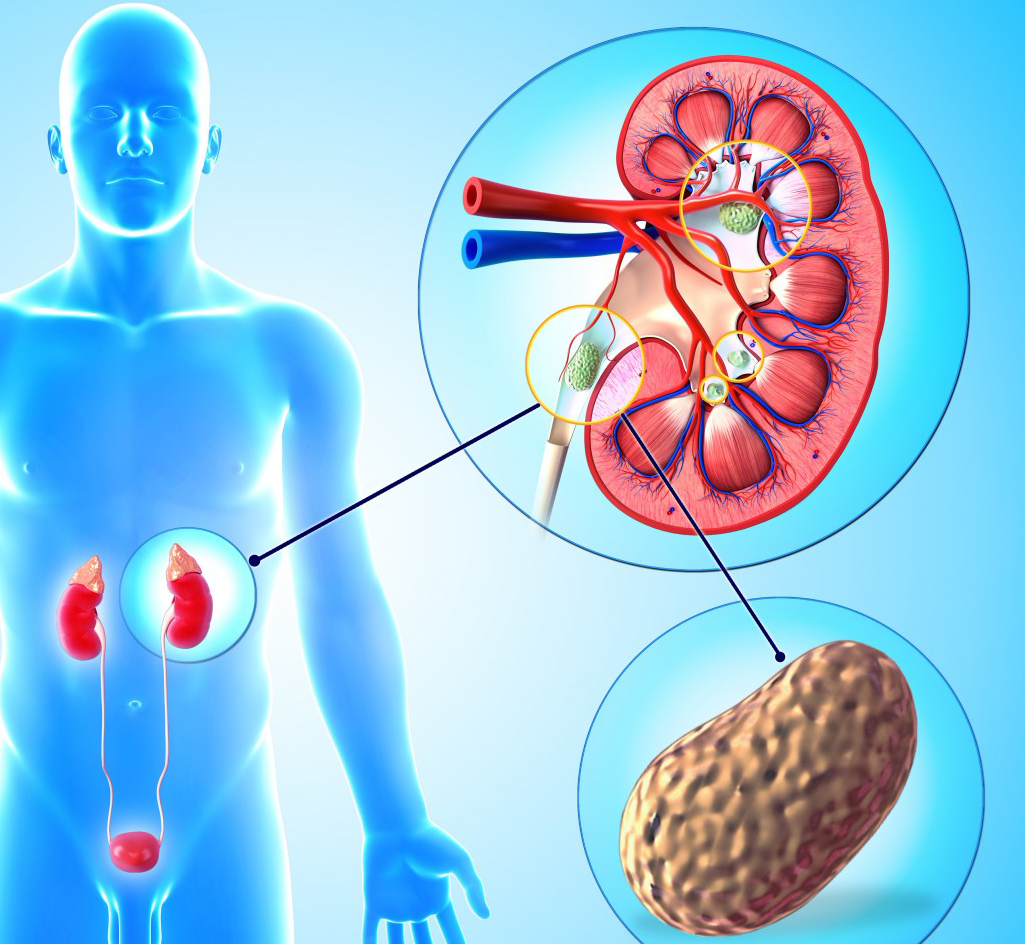Yes, kidney stones can often be prevented by making certain lifestyle changes and following dietary recommendations.
Here are some strategies to help reduce the risk of kidney stone formation:
- Stay Hydrated: Drinking plenty of fluids, especially water, is one of the most effective ways to prevent kidney stones. Adequate hydration helps dilute urine and prevents the formation of concentrated minerals that can lead to stone formation. Aim to drink at least 8-10 cups of water per day, or more if you live in a hot climate or engage in vigorous physical activity.
- Limit Sodium Intake: High dietary sodium intake can increase the amount of calcium excreted in the urine, which can contribute to the formation of calcium-based kidney stones. Limit your intake of processed and packaged foods, which are often high in sodium, and try to cook with fresh ingredients and herbs to flavor your meals instead of relying on salt.
- Reduce Oxalate-Rich Foods: Oxalates are compounds found in certain foods that can bind with calcium in the urine, forming crystals that contribute to kidney stone formation. Limiting foods high in oxalates, such as spinach, rhubarb, beets, nuts, chocolate, and tea, may help reduce the risk of calcium oxalate stones.
- Moderate Protein Intake: Diets high in animal protein, particularly red meat and poultry, can increase the excretion of uric acid and calcium in the urine, leading to stone formation. Aim for a balanced diet that includes moderate amounts of lean protein sources such as fish, poultry, beans, and tofu.
- Calcium-Rich Foods: Contrary to popular belief, adequate dietary calcium intake may actually help prevent kidney stone formation by binding to oxalates in the digestive tract, preventing them from being absorbed into the bloodstream and excreted in the urine. Include calcium-rich foods such as dairy products (milk, yogurt, cheese), leafy greens, and fortified foods in your diet.
- Limit Oxalate-Rich Beverages: Beverages such as tea, coffee, and certain fruit juices (e.g., cranberry, grapefruit) are high in oxalates and may increase the risk of kidney stone formation. Limiting consumption of these beverages, particularly if you have a history of calcium oxalate stones, may be beneficial.
- Maintain a Healthy Weight: Obesity and being overweight are associated with an increased risk of kidney stone formation. Adopting a healthy lifestyle that includes regular physical activity and a balanced diet can help maintain a healthy weight and reduce the risk of kidney stones.
- Monitor Medications: Some medications, such as diuretics, antacids containing calcium, and certain prescription medications, can increase the risk of kidney stone formation. If you are taking medications that may affect kidney function or stone formation, discuss potential risks with your healthcare provider.
By incorporating these preventive measures into your lifestyle, you can help reduce the risk of kidney stone formation and promote overall urinary tract health. If you have a history of kidney stones or other risk factors, it's important to work closely with your healthcare provider to develop a personalized prevention plan tailored to your specific needs. Regular follow-up appointments and monitoring can help track your progress and make any necessary adjustments to your treatment plan.





Comments